'The entire region that I love so much can come together and celebrate the Oscar nomination.'
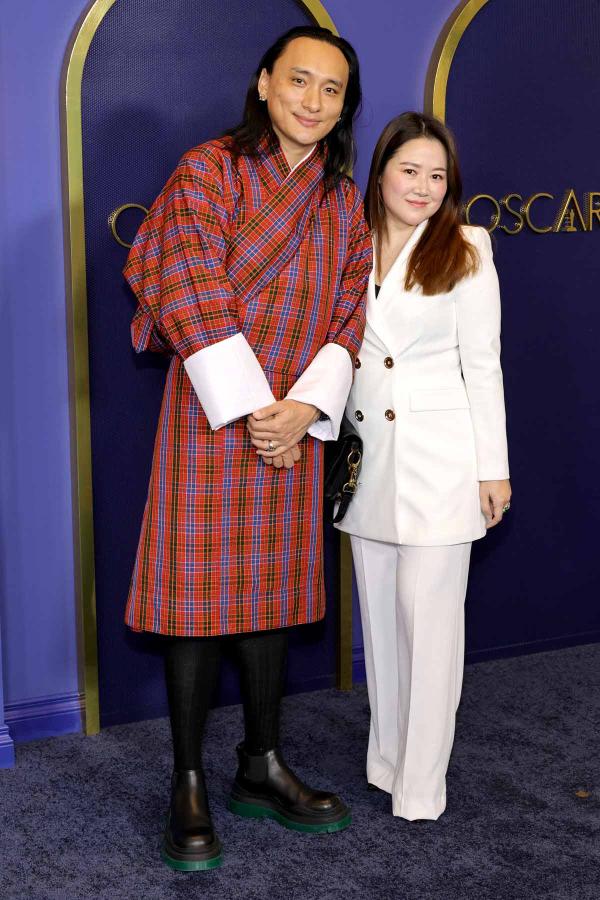
Pawo Choyning Dorji has made his first film Lunana: A Yak in the Classroom in one of the most remote parts of Bhutan, where the reach of globalisation and urbanisation is almost non-existent.
"Here, we had the one last chance to capture and share the purity of this world before they got corrupted," he explains about Lunana.
The film has been nominated at the Oscars in the foreign language category, making it Bhutan's second entry ever at the Academy Awards.
"My studies in US, then studying Buddhism and living in India, all that played a role in my becoming a storyteller," Dorji tells Rediff.com Senior Contributor Aseem Chhabra.
You imagined the valley without every going there. But how did you imagine the innocence of the people, the way you captured that on screen?
The reason why I wanted to go to this place so badly was because of the innocence.
I wanted the purity.
How is it to live in a place that does not have electricity or a telephone connection, where people do not have any concept of what the world is beyond the mountains?
I didn't want it to be somewhere else where people have to pretend that they are innocent.
I wanted this untouched place, and you see that in a lot of the scenes.
It's happening naturally.
I am not telling them to act.
The children had never seen a film in their life, so it was very difficult to put this big, black thing in front of them and be like, 'Oh, do this, do that.'
Instead, we would take the camera and then say, 'Okay, the class is happening and the teacher is teaching. Now just write whatever you are writing.'
A lot of the scenes that you see are happening organically.
When I was making the film, every time I would go to the school, I would see this purple tent outside.
When I looked inside one day, I saw an old woman trying to make a fire.
In fact, it was tarpaulin and not a tent. And there was a little girl doing her homework.
I asked what was happening there.
The old lady told me that she lived in a village that was about six hours away from the mountain.
She added there was no school in her village, but she wanted to ensure that her granddaughter got an education. So she brought her here and because they didn't have a house, they were living in this tent.
I was so touched, I decided to include this track in the movie.
We improvised and added such stories to the script. And that is how the movie was made.
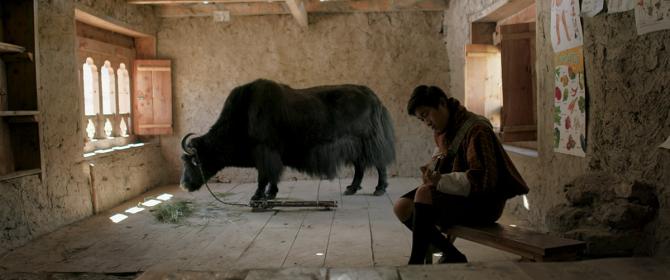
Do you think you touched their lives to the extent that they now have some notion of the outside world? In fact, I don't know if you narrated the whole story to the kids, especially since your protagonist actually wants to leave Bhutan and migrate to Australia.
When I was making the film, I used to have doubts and question myself.
Here I had come from a world away, bringing all these foreign things to tell a story of Lunana.
I would wonder, 'Am I doing the right thing? What right do I have to come into this pure land of these untouched people and capture their stories and then share it with the world? How am I corrupting this world?'
But on the last day, as we were packing to leave, a second group had come to take over the house where we were living in.
It was the government's telecom people who were sent to construct telecommunication towers.
The day I was leaving, in a very strange twist of fate, 3G was being brought into Lunana.
That's when I thought, 'It's okay. I think I did the right thing.'
Because here, we had the one last chance to capture and share the purity of this world before they got corrupted.
With electricity and 3G coming in, it makes life easier.
But now people in Lunana will have Facebook and Tik Tok.
Just a few weeks ago, Pem Zam wrote to me on Facebook.
I felt so happy to hear from her but in a way, I felt heartbroken to know that she is now on social media.
Would the education they are getting lead them to college? Would they want to move to bigger cities?
There are so many elements that are knocking on Lunana's doors.
Every day the people are getting more aware, more in touch with the outside world.
Bhutanese people are known to be happy because their beliefs are built on Buddhism.
We say, 'Oh, everyone has to be content.'
Contentment is very easy when you don't have a sense of comparison.
But as the country modernises, not just Lunana, but the rest of Bhutan, as we get more connected to the outside world, there are many comparisons.
Life is getting easier in Lunana, but then all those stories, the belief in the circle of life, the interdependency, all that will slowly start to disappear.
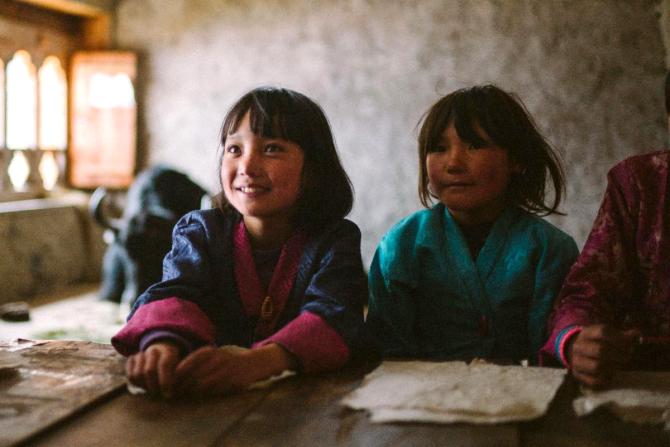
You mentioned your father is a diplomat and you were studying political science. So have you lived in different parts of the world with your father?
Oh, yes! I always tell people that the story of Ugyen in this movie is inspired from my life.
The only thing is I am very different from other Bhutanese because I grew up outside. I saw the world.
I grew up in India, Europe and America, and then I came back and reconnected with my roots.
My love and admiration for my culture and spiritual traditions was rekindled. In a way, I am trying to show that in the film.
Where did you study political science?
In the US, I attended a small liberal arts college called Lawrence University in Wisconsin.
Life works in strange ways.
There I was studying political science and now I have become one of the college's first Oscar nominees.
My professors cannot fathom how a person who was studying political science is now making films!
But that's how it works, right?
I wouldn't have it any other way.
My studies in US, then studying Buddhism and living in India, all that played a role in my becoming a storyteller.
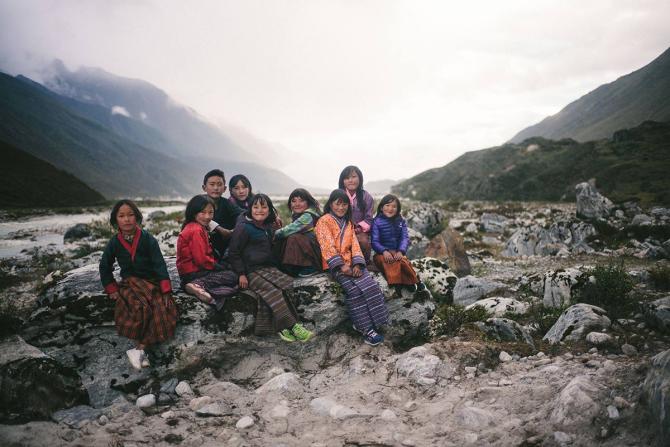
So are you going to the Academy Awards?
Well, if the US government gives me a visa.
I am having some visa issues, so I am waiting for that to be resolved. But if it gets resolved, definitely. (Note: This interview was conducted before Dorji received a US visa.)
I see this as such a precious opportunity for me to represent my country, my culture and my people.
Could you bring Pem Zam also?
I think that would be difficult because she is still up in Lunana.
In Bhutan, we have a very strict COVID policy. Every time there is even one case, the entire country locks down.
Right now, it is under a four-month long lockdown, so getting anything done in Bhutan is difficult.
Pem Zam would need a passport. So far, she has never set foot outside Lunana.
Well, Pawo good luck to you.
Thank you. As you were saying in the beginning, this journey is not just for Bhutan, but for South Asia. It has really captured the hearts of all South Asians.
I hear in Dharamsala, Tibetan youth are having get-togethers in coffee shops to discuss this movie. There is almost like the South Asian pride and I am so happy.
The entire region that I love so much can come together and celebrate the Oscar nomination.








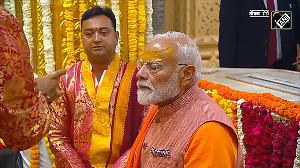

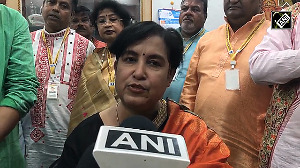
 © 2025
© 2025